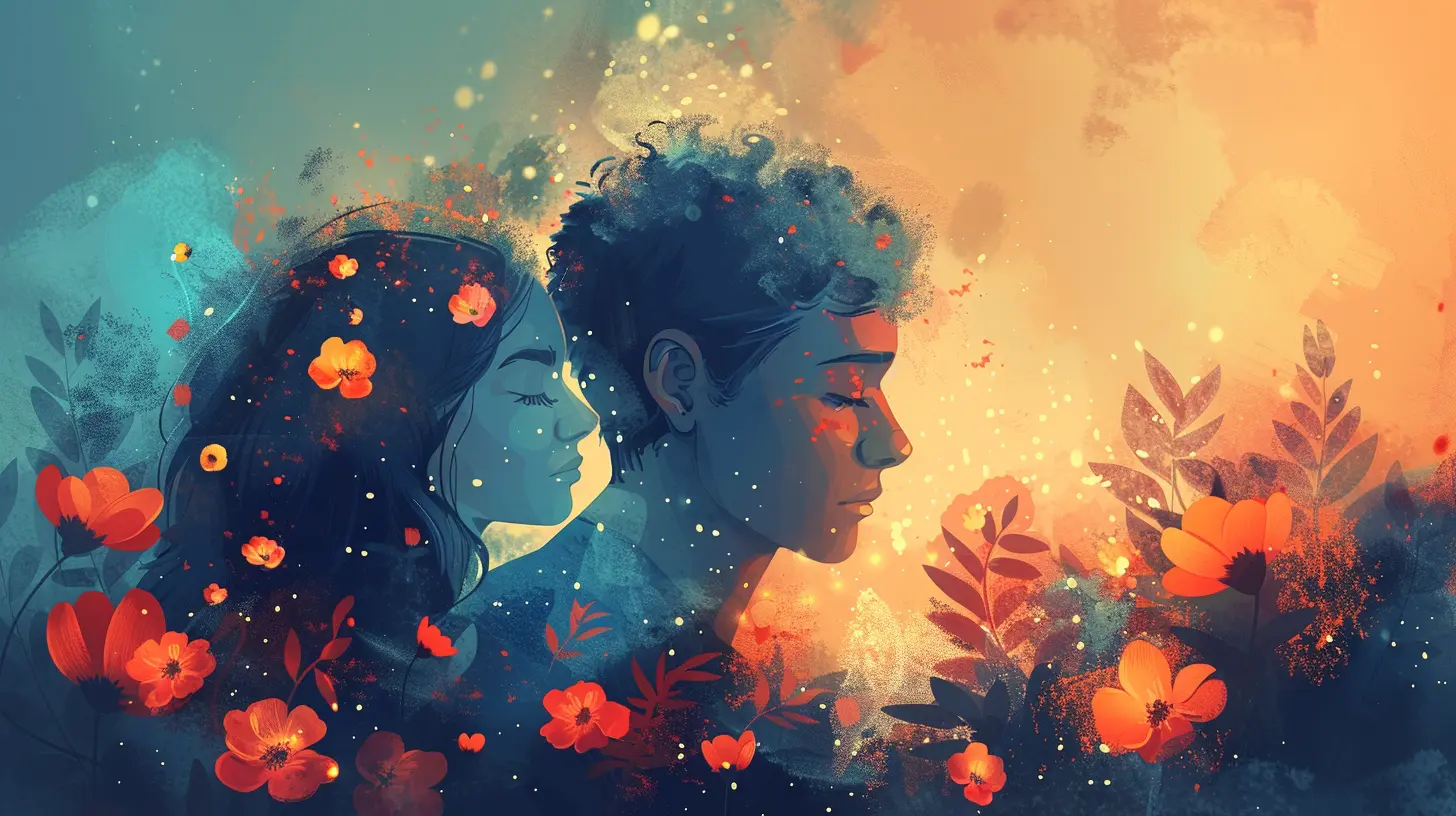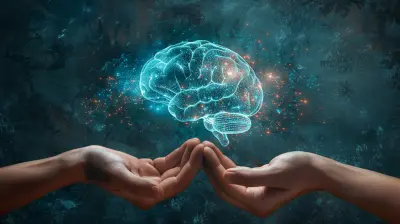How to Cultivate Emotional Independence in a Relationship
10 September 2025
So, you're in a relationship, and things are peachy... until they’re not. You love your partner, but — let’s be honest — you're a little too emotionally entangled. Like, as in, if your partner sneezes weird, you're spiraling into a full-blown existential crisis by lunch. Sound familiar?
Yeah, emotional dependence can sneak up like that uninvited cousin who shows up at every family BBQ and doesn’t know when to leave. But the good news? You can show emotional dependence the door (very politely, of course) and start cultivating emotional independence — without turning into a cold, unfeeling robot.
So grab your emotional toolkit, favorite cozy beverage, and let’s get into the nitty-gritty of becoming your own emotional boss in your relationship.
What the Heck Is Emotional Independence Anyway?
Let's break it down. Emotional independence is not about becoming some lone wolf who doesn't need anyone. It's not about walling yourself off, ghosting your partner, and quoting Pinterest quotes about “loving yourself first” as your only relationship philosophy.Nah, emotional independence is more about this: being able to meet your own emotional needs without relying on your partner to hold your emotional life together with duct tape and prayer.
It’s the ability to maintain your identity, strength, and sanity whether you're in love, dealing with drama, or just navigating rainy Tuesdays.
Why Is Emotional Independence in a Relationship Such a Big Deal?
Oh, only because it’s kind of crucial if you want your relationship to last longer than a carton of milk.Here’s what happens when you’re emotionally dependent:
- You start looking to your partner to validate everything you do.
- You're crushed when they’re not 110% available at all times.
- You panic when they need space (because obviously that means they don’t love you anymore, right? Wrong.)
And let’s be real — that can get exhausting. For both of you.
But when you're emotionally independent:
- You can handle your emotions like a seasoned emotional ninja.
- You don’t lose your sense of self in the relationship.
- And — plot twist — your relationship actually gets stronger because it’s based on mutual respect and emotional adulthood.
Step 1: Get Cozy With Your Own Emotions
First things first: if you want to be emotionally independent, you've gotta start hanging out with your own emotions like they’re your quirky besties.Instead of offloading your feelings onto your partner like a hot potato, take a beat and ask yourself:
- What exactly am I feeling?
- Why am I feeling this?
- Can I sit with this feeling without needing someone else to fix it?
Look, emotional maturity isn’t about suppressing your feelings. It’s about owning them. Like a boss.
> “I’m sad” doesn’t mean “Babe, you must cancel all your plans and fix me.”
> It means “Hey, I’m feeling down, and I’m working through it.”
Big difference.
Step 2: Set Boundaries (And Actually Stick To Them)
Ah yes, boundaries — those magical fences that keep the chaos out and your sanity intact. Emotional independence requires some good ol’ fashioned boundary setting.And not the flimsy kind that collapse the second someone raises an eyebrow.
No, we’re talking the sturdy, healthy, emotionally-mature kind.
Examples of emotional boundaries in a relationship:
- Not feeling responsible for your partner’s moods (you’re not a therapist… unless you are, but even then — boundaries, friend!)
- Taking alone time without guilt
- Saying "no" without spiraling into people-pleasing panic
Setting boundaries = self-respect. And self-respect is sexy. Just sayin’.
Step 3: Don’t Lose Your “You” in Your “We”
This one’s a silent killer.You meet someone amazing. You start spending every waking second together. Suddenly, your hobbies? Gone. Your friends? Ghosted. Your dreams? Collecting dust.
And now your entire personality is just... being their partner.
Yeah, don't do that.
A healthy relationship should enhance your life, not consume it like a black hole of co-dependence.
So go do your thing:
- Keep your own life vibrant and fulfilling
- Spend time with your friends (without the plus one)
- Chase that weird passion for pottery or skydiving or underwater basket weaving
Basically — stay fascinating.
Step 4: Stop Playing the Emotional ATM
Look, being there for each other is part of any solid relationship. But constantly withdrawing emotional validation from your partner like they’re an ATM? That’s a hard no.When you need your partner to constantly reassure you that:
- You’re lovable
- You’re enough
- You’re not secretly ruining everything
…you give them a full-time job they didn’t sign up for.
Yes, compliments and support are lovely. But your self-worth? That comes from you. Not from a daily ration of “you’re amazing” texts.
Emotional independence means filling your own tank — and letting others add to it, not power it.
Step 5: Make Peace With Solitude
If being alone feels like a punishment, newsflash: it’s time to befriend solitude.People who fear being alone often cling harder in relationships, not because they love their partner so much, but because they’re terrified of being with themselves.
Ouch, right?
But here’s the good part — once you learn to enjoy your own company, you stop needing someone else to complete you. You’re already whole.
Take yourself on a solo date. Sit with silence. Turn off the distractions. Cultivate your inner world.
When you don’t fear solitude, your relationships become a choice — not a crutch.
Step 6: Cut the Codependency Cord
Codependency is that toxic little gremlin that whispers, “You’re only okay if they’re okay.”No thanks.
Emotional independence means recognizing that you’re responsible for your feelings, and your partner is responsible for theirs.
It’s not selfish... it’s healthy.
If your partner’s having a bad day, you can be supportive without plunging into a shared emotional pit of despair. You can care without carrying. You can love without losing yourself.
That’s the balance we’re aiming for.
Step 7: Be Comfortable With Disagreement
Hot take: You’re not supposed to agree on everything.Shocking, I know.
Emotionally dependent folks often avoid conflict like it’s lava — anything to avoid upsetting their partner’s opinion of them. But emotional independence? It’s about being able to hold different views and still feel totally secure in the relationship.
You’re allowed to say things like:
- “I see it differently.”
- “It bothers me when…”
- “Let’s agree to disagree.”
Because guess what? Healthy disagreement = growth. And growth = not being emotionally fused like two clingy barnacles on a shipwreck.
Step 8: Practice Self-Soothing (Like, Actually Do It)
Self-soothing is the emotional version of putting your own oxygen mask on first.Instead of spiraling into panic and texting your partner 87 times when you’re triggered, try regulating your emotions on your own.
It could look like:
- Deep breathing (and no, not the dramatic sighing kind)
- Journaling your thoughts instead of unloading them immediately
- Talking kindly to yourself
- Taking a walk or doing something grounding
Being able to calm your own storm? That’s emotional independence gold.
Step 9: Know Your Relationship Is Part Of Your Life — Not Your Whole Life
Here’s a fun fact: You are more than someone’s partner.If your relationship feels like your only source of joy, purpose, and identity… well, that’s a lot of pressure for one human connection to carry.
Instead, keep your life full of other stuff that lights you up:
- Meaningful work
- Good friendships
- A solid relationship with yourself
- Hobbies for days
Your relationship should be a beautiful addition — not the entire glue holding your life together.
When you have purpose outside of your relationship, you walk into it already whole. Not looking for someone to complete your half-baked emotional pizza.
Real Talk: Can You Be Emotionally Independent AND Deeply In Love?
Yes. A thousand times yes.Being emotionally independent doesn’t mean you’re aloof, distant, or incapable of a deep bond. It just means your happiness isn’t hanging on your partner’s mood swings or availability.
Love is better — way better — when it comes from a place of strength, not survival.
Think of it as two strong trees standing close together. Their roots are their own, but their branches support each other. That’s the vibe.
Closing Thoughts: Be The Main Character In Your Own Emotional Life
At the end of the day, cultivating emotional independence is about reclaiming your power. It’s about being the main character in your emotional narrative — not a supporting actor in someone else’s drama.It’s not as simple as flipping a switch. It’s a process. But with small, intentional steps, you can stop outsourcing your emotional well-being and start becoming the calm, confident, emotionally-sorted human you were always meant to be.
So go on — love boldly, live fully, and keep your emotional crown straight. 👑
You’ve got this.
all images in this post were generated using AI tools
Category:
Emotional DependencyAuthor:

Gloria McVicar
Discussion
rate this article
1 comments
Erin Myers
Rooted hearts, free souls.
October 5, 2025 at 2:21 AM

Gloria McVicar
Thank you! That beautifully captures the essence of balancing love and personal freedom.


